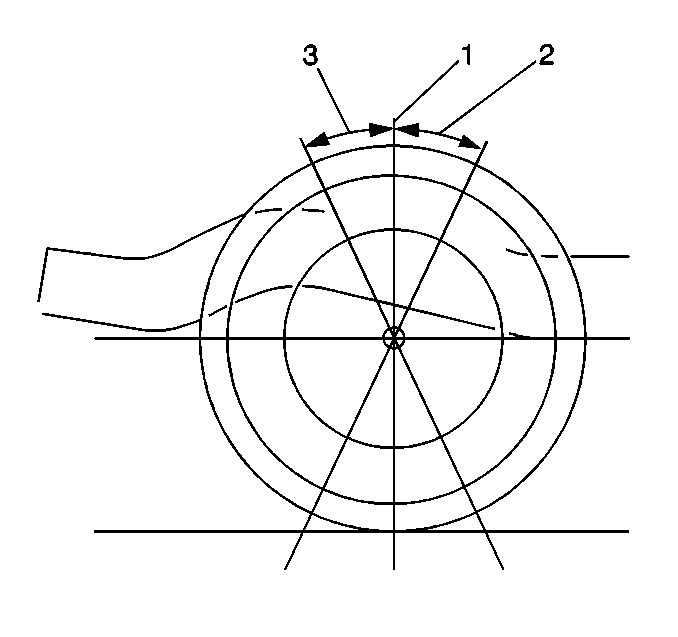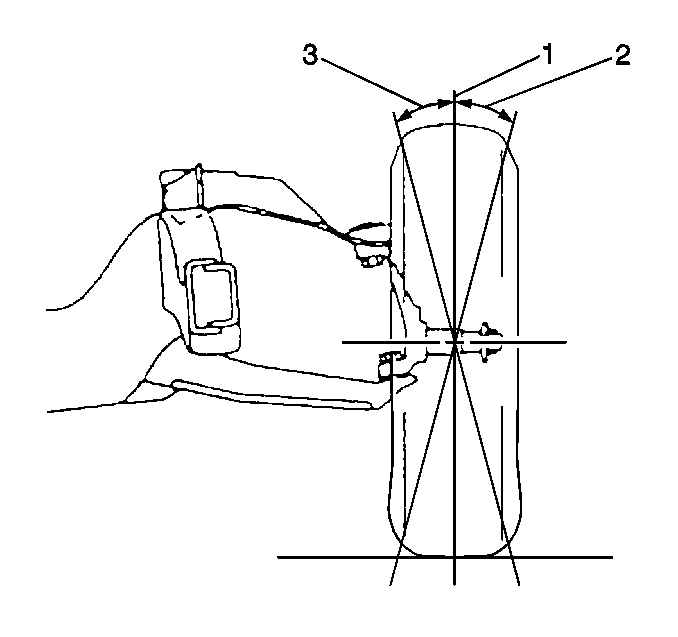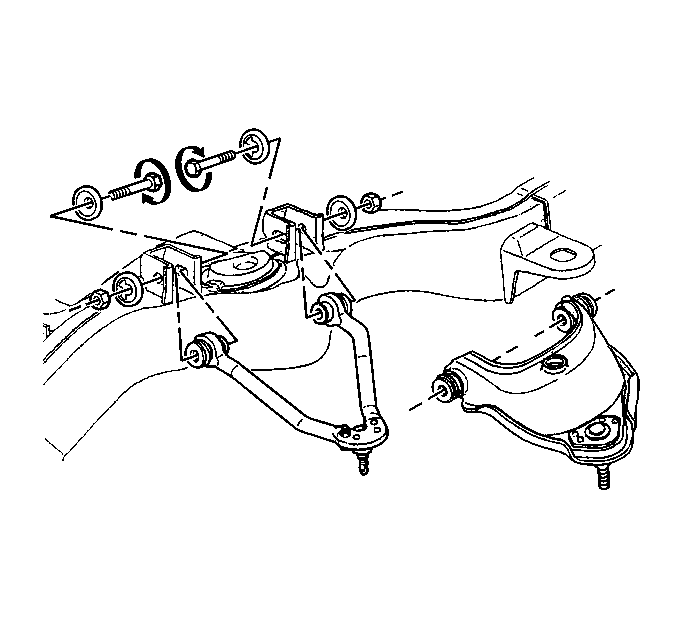The caster and camber adjustments are made by rotating the offset cam bolt and the cam in the slotted frame bracket in order to reposition the control arm.
Important: Before adjusting the caster and camber angles, jounce the front bumper three times to allow the vehicle to return to normal height.
Measure and adjust the caster and the camber with the vehicle at curb height. The front suspension Z dimension and the rear suspension D dimension are indicated in Trim Heights. Refer to Trim Height Inspection in Suspension General Diagnosis.- For an accurate reading, do not push or pull on the tires during the alignment process.
- Determine the caster (2,3) angle.
- Determine the camber (2,3) angle.
- If the caster and the camber angles are not within specifications, remove the frame bracket knockouts. Refer to Frame Bracket Knock Out Removal .
- Adjust the caster and the camber angle by turning the cam bolts until the specifications have been met.
- When the adjustments are complete, hold the cam bolt head in order to ensure the cam bolt position does not change while tightening the nut.
- Verify that the caster and the camber are still within specifications. Refer to Wheel Alignment Specifications .



Notice: Use the correct fastener in the correct location. Replacement fasteners must be the correct part number for that application. Fasteners requiring replacement or fasteners requiring the use of thread locking compound or sealant are identified in the service procedure. Do not use paints, lubricants, or corrosion inhibitors on fasteners or fastener joint surfaces unless specified. These coatings affect fastener torque and joint clamping force and may damage the fastener. Use the correct tightening sequence and specifications when installing fasteners in order to avoid damage to parts and systems.
Tighten
Tighten the cam nuts to 190 N·m (140 lb ft).
If the caster and camber are within specifications, Refer to Front Toe Adjustment .
